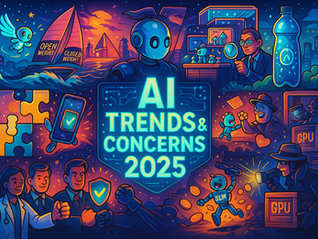Why will the Universal Basic Income Liberate you from the 9AM-5PM Schedule and Slavery?
- UnitedEarth
- Jan 4, 2023
- 5 min read
Updated: Feb 27, 2023
The dream of freedom:
The concept of universal basic income, or UBI, has been around for centuries, with proponents arguing that it could provide a safety net for individuals in an automated society and promote greater economic and social equality. One of the earliest proponents of UBI was Thomas More, who wrote about the idea in his book "Utopia" in the 16th century. More imagined a society in which everyone received a basic income as a right of citizenship, regardless of their employment status.

In the modern era, UBI has been championed by a range of figures, including Martin Luther King Jr., who argued that it could help to eliminate poverty and provide a foundation for people to pursue their own goals and interests.
In recent years, UBI has gained renewed attention as automation and artificial intelligence have become more prevalent in the workforce.

Universal basic income (UBI) is a revolutionary concept that could transform society as we know it. It is a system in which every person in society receives a regular, unconditional cash payment from the government. This payment is enough to cover basic needs and provide financial security, freeing people from the constraints of mandatory work.

Right now, as we speak, it's possible to reduce the amount of work that we do on a daily basis, but only if we have the will to demand it from our governments and scientists. With modern automation technologies, it is very possible to automate many jobs and tasks, freeing up more time for people to pursue their own goals and interests. However, despite this possibility, many people continue to work long hours, often 10 hours or more per day. This is due in large part to a lack of awareness about the potential for automation, as well as a belief that a life without stress and challenge is meaningless.
For some, the stress and challenge of work is what gives their lives purpose and meaning. They believe that an easier life would take this away, and so they choose to force their lifestyles onto others, rather than helping those who may be struggling with the demands of labor and work.
Evidence and Data that UBI could work:
If you’re like me, you’ve probably seen a naysayer or two talk about how “Basic Income couldn’t work”. You’ve heard the misguided talking points about “people being lazy” or that it’s “bad for the economy”, or maybe even that “it raises taxes on the middle class”.

• 🤝 Basic Income helps working people, giving them the freedom to look for a better job, go back to school, or simply negotiate better work conditions. People spend more time volunteering and giving back to their communities.
• 💳 Basic Income helps small businesses and entrepreneurs, the backbone of a thriving economy. It gives people more freedom to take risks like starting a business. People spend it right back into their local economies, helping those businesses grow and hire more.
• 💖 Basic Income is incredibly good for people’s health. People who get a Basic Income eat healthier, exercise more, spend more time with family, and visit the doctor less. This means billions of dollars in savings to our healthcare system.
• 🤖 Basic Income helps those affected by automation, which has been melting wages and erasing jobs for over 50 years. It buys people the time they need to transition into the job market and economy of tomorrow.
• 💸 Basic Income could grow the economy more than it costs. A national Basic Income could grow the economy by $80B/year, create 600K jobs, and support working people and businesses – while lifting 3.2 million families out of poverty.
• 👶 In fact, we already have a Basic Income for families – the Canada Child Benefit – that’s growing the economy $2 for every $1 invested, keeping 250K families out of poverty, and contributing over 450K jobs.
• 💰 And yes, we can pay for it without taxing the vast majority of Canadians. TLDR: if your money comes from a paycheque, you likely won’t pay for it.
Lets look at the data and see what we can do about the labor with modern automation technologies... Shocking results right?

So you can see no one is doing it because it's just matter of mindset, rather than the idea itself, which it could actually really happen. We're going to show you a timeline in which people actually support the universal basic income and we're going to see how it would change our society.
Simulated Timeline:
It's 2023, and the idea of universal basic income (UBI) has gained widespread popularity in Europe. People are tired of working long hours and struggling to make ends meet, and they see UBI as a way to free themselves from the constraints of mandatory labor.

A grassroots movement of UBI supporters begins to emerge, with people organizing protests, rallies, and online campaigns to demand that their governments and scientists accelerate the advancement of artificial intelligence and automation. They believe that by automating as many jobs as possible, they can create a society in which everyone can live comfortably without having to work.
The movement gains traction, and after a long and difficult battle, their goals finally become reality in 2030 when the governments of Europe announce that they will be implementing a universal basic income policy for all citizens.

The implementation of UBI is met with widespread celebration and relief. People no longer have to worry about financial insecurity or being unable to afford the basic necessities of life. They are free to pursue their own goals and interests, and many start their own businesses or pursue creative passions that they had previously been unable to afford.
At the same time, people are still free to choose whether they want to work or not. Those who find meaning and purpose in their work can continue to work as much as they please, while those who don't feel fulfilled by their jobs can quit without fear of financial insecurity. Everyone has the freedom to live their lives as they see fit, and to find meaning and purpose in their own way.

The economy sees a surge in entrepreneurship and innovation, as people are no longer held back by financial constraints. Unemployment rates drop as people have more financial security and are able to take on new job opportunities.
As a result of UBI, society becomes more equal and fair. Poverty rates plummet as everyone has a reliable source of income, and the government is able to redirect resources previously used for welfare programs to other areas. Mental health improves as people have less financial stress and are able to afford therapy and other forms of support.

Overall, the implementation of UBI leads to a "utopia-like" society in which people are free to pursue their own goals and interests without fear of financial insecurity. It is a society in which creativity and innovation thrive, and people are no longer held back by the constraints of mandatory labor. But remember UBI is not utopia.. but it's rather a first step closer for a utopic world! and we have still a long way to go before even we taste the feeling of real utopia.
References:
https://eci-ubi.eu/
There is a long way to go before even we taste the feeling of real utopia.
The Basic Income works. Here’s the proof:
https://bigthink.com/the-present/work-less/#Echobox=1667125097
Evidence of UBI reducing IQ points from work and stress:
https://www.inc.com/jessica-stillman/intelligence-abundance-mindset-oprah-winfrey-tony-robbins.html
Before you look more videos about the universal basic income, you can watch this video to train your critical thinking.
https://www.youtube.com/watch?v=bJNytiQ2HM0
There are a lot of evidence to support how the universal basic income could work without the problem of inflation...
Here are the links:
https://www.youtube.com/watch?v=6WwHvNDrGV0












































































































Comments